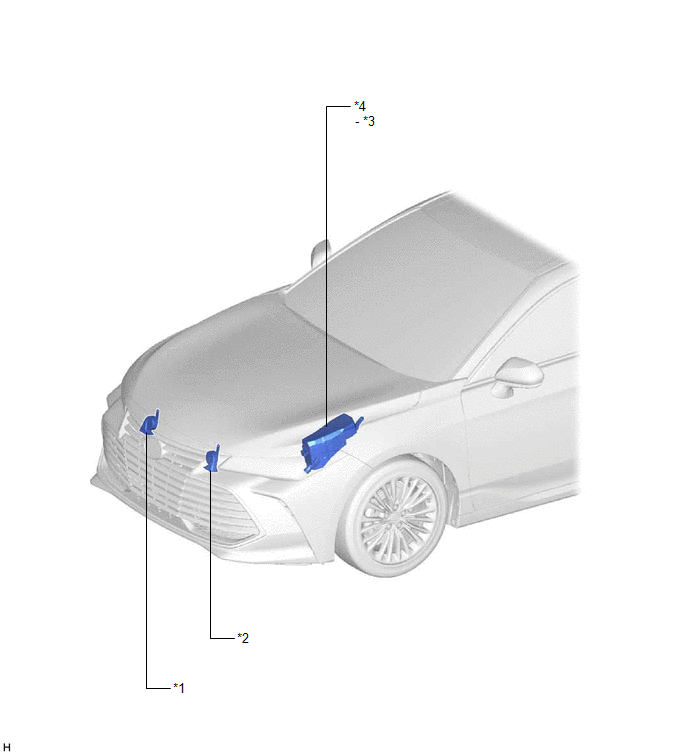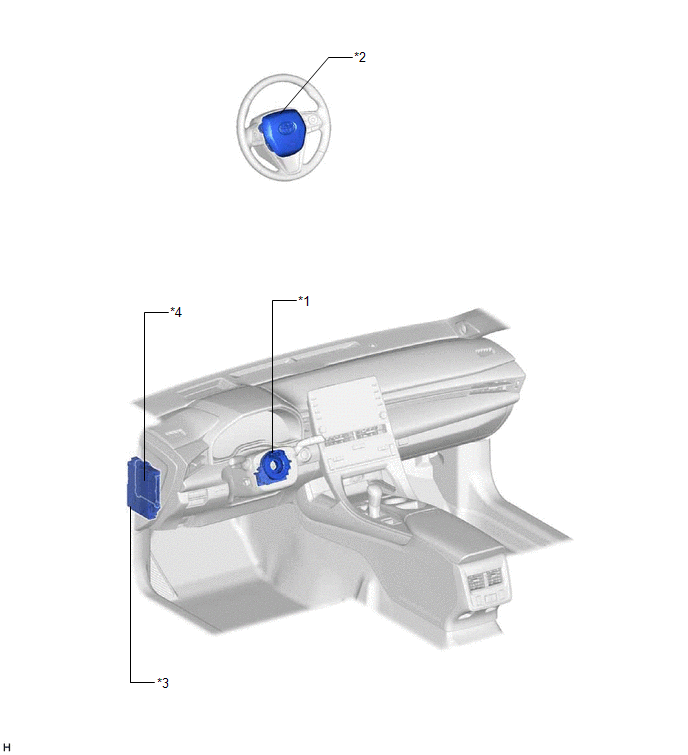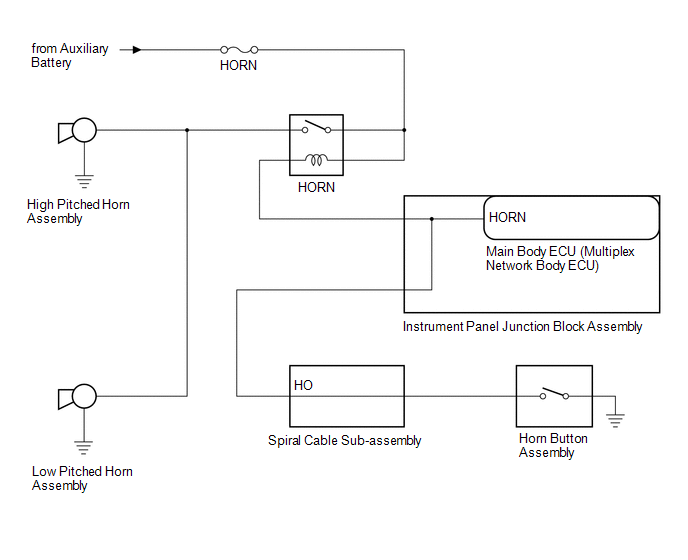Data List / Active Test
DATA LIST / ACTIVE TEST
ACTIVE TEST
HINT:
Using
the Techstream to perform Active Tests allows relays, VSVs, actuators
and other items to be operated without removing any parts. This
non-intrusive functional inspection can be very useful because
intermittent operation may be discovered before parts or wiring is
disturbed. Performing Active Tests early in troubleshooting is one way
to save diagnostic time. Data List information can be displayed while
performing Active Tests.
(a) Connect the Techstream to the DLC3.
(b) Turn the power switch on (IG). (for HV model)
(c) Turn the engine switch on (IG). (for Gasoline model)
(d) Turn the Techstream on.
(e) Enter the following menus: Body Electrical / Main Body / Active Test.
(f) Perform the Active Test according to the display on the Techstream.
Body Electrical > Main Body > Active Test
|
Tester Display | Measurement Item |
Control Range | Diagnostic Note |
|
Vehicle Horn | Vehicle horn |
OFF or ON | - |
Problem Symptoms Table
PROBLEM SYMPTOMS TABLE
NOTICE:
Before replacing the main body ECU (multiplex network body ECU), refer to Registration.
for Gasoline Model: Click here 
for HV Model: Click here

HINT:
Use
the table below to help determine the cause of problem symptoms. If
multiple suspected areas are listed, the potential causes of the
symptoms are listed in order of probability in the "Suspected Area"
column of the table. Check each symptom by checking the suspected areas
in the order they are listed. Replace parts as necessary.
Horn System |
Symptom | Suspected Area |
Link |
|
Horn does not sound | HORN fuse |
- |
| HORN relay |
 |
|
Horn button assembly |
 |
|
Spiral cable sub-assembly |
 |
|
Instrument panel junction block assembly |
 |
|
Harness or connector |
- |
|
Horn sounds all the time |
HORN relay |
 |
|
Horn button assembly |
 |
|
Spiral cable sub-assembly |
 |
|
Instrument panel junction block assembly |
 |
|
Main body ECU (Multiplex network body ECU) |
 |
|
Harness or connector |
- |
| Low pitched horn operates but high pitched horn does not operate |
High pitched horn assembly |
 |
|
Harness or connector |
- |
| High pitched horn operates but low pitched horn does not operate |
Low pitched horn assembly |
 |
|
Harness or connector |
- |
















